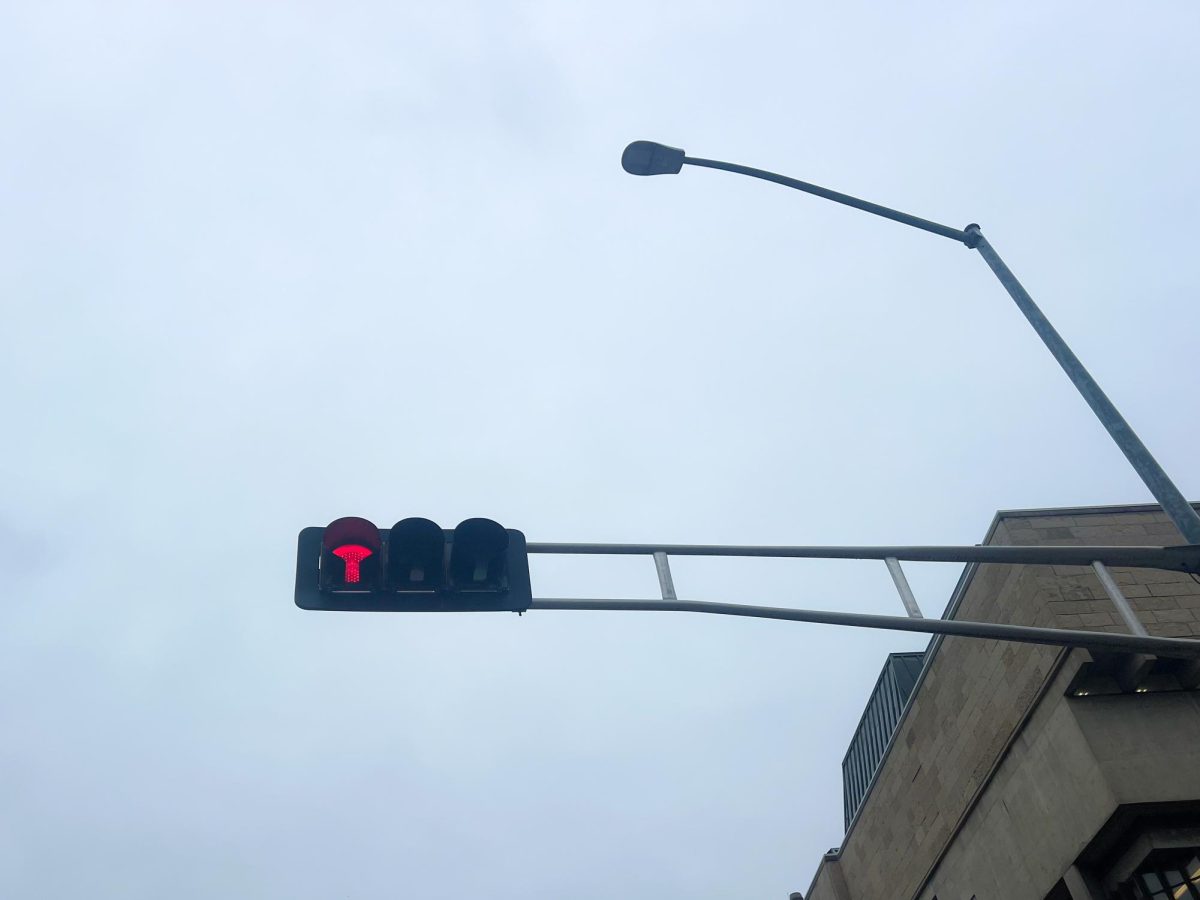The City of Madison installed a memorial display Sunday, Nov. 17, to honor lives lost to traffic violence in recognition of World Day of Remembrance for Road Traffic Victims. During a press conference, Mayor Satya Rhodes-Conway said the city can do more to prevent traffic-related fatalities.
In the last five years, Madison has experienced 71 tragic fatalities within 65 fatal crashes, the website noted.
To address traffic-related incidents, Mayor Satya Rhodes-Conway has been advocating to bring traffic cameras to the City of Madison, according to the CapTimes.
In an October virtual event, Rhodes-Conway was asked about the city’s next steps in addressing and reducing road accidents and fatalities in Madison. Rhodes-Conway praised an initiative called Vision Zero.
Vision Zero is a data-driven strategy intended to eliminate traffic deaths and injuries.
The strategy includes options to continue evaluating speed limits and implementing video speed enforcement, but state law currently prohibits traffic ca`meras. Rhodes-Conway argues traffic cameras would help keep people safe as both drivers and pedestrians in Madison, according to the CapTimes.
Currently, traffic surveillance cameras are only located on ‘critical’ streets and intersections throughout the City of Madison to analyze traffic flows and crashes, according to the City of Madison 2024 Surveillance Technology Report.
In the last legislative session, a bill was proposed to change the law prohibiting traffic cameras in cities, such as Milwaukee and Madison, American Civil Liberties Union of Wisconsin Policy Analyst Jon McCray Jones said.
The ACLU of Wisconsin agrees more funding is needed for infrastructure but opposes traffic safety cameras, Jones said. Instead, the organization suggests less invasive options to reduce traffic accidents, including longer wait times at red lights or more roundabouts, according to Jones.
“There is an argument that red-light cameras reduce reckless driving and make us safer, and really, it is inconclusive that it makes us safer,” Jones said. “One thing that we know for sure is that it does reduce fatalities, but injuries and incidents it [traffic cameras] would not do much change.”
The citizens of Madison should be fully informed about all the information regarding traffic lights and red light cameras, and citizens should have the final say on whether the city should implement that technology, Jones said.
Throughout cities across America, private corporations have volunteered to set up and maintain the traffic red light cameras and traffic lights at no expense to the city, Jones said.
“What is really happening is that when there’s a ticket, the private corporation receives a third of the revenue, which then incentivizes these private corporations to put the cameras in places that are more profitable,” Jones said.
These more profitable areas are normally where there are marginalized communities and lower-income individuals who are less likely to fight tickets in court, Jones said.
The majority of the time, these red light cameras are over-installed in poor neighborhoods to exploit marginalized communities for private corporations to make a profit off of them, Jones said.
A 2020 congressional research report showed that red light cameras are not always installed in areas where they would have the greatest impact on safety, but in areas that would be the most profitable, Jones said.
To counter this issue, Jones highlighted a national campaign with the ACLU called Community Control Over Police Surveillance. CCOPS would increase transparency, making surveillance accountable to public elected officials and community leaders, Jones said.
Surveillance technology is normally decided by law enforcement and private corporations with very little oversight on where they’re implemented, what communities are surveilled, whose privacy is collected and what’s happening with that data, Jones said.
But CCOPS would require all surveillance technology to go through a public hearing so the community knows what is being installed and how they’re being surveilled. Then, they can decide if it’s worth it or not, Jones said.
The ACLU encourages cities, such as Madison and Milwaukee, to be transparent with the cities’ citizens when creating a surveillance network of cameras throughout the city, Jones said.
“We do not know how much safer, if any safer, traffic surveillance is,” Jones said, “At the end of the day, American citizens should be able to decide how much privacy they’re willing to trade for safety, as well as know if the privacy that they are trading for safety is making them safer or not.”




